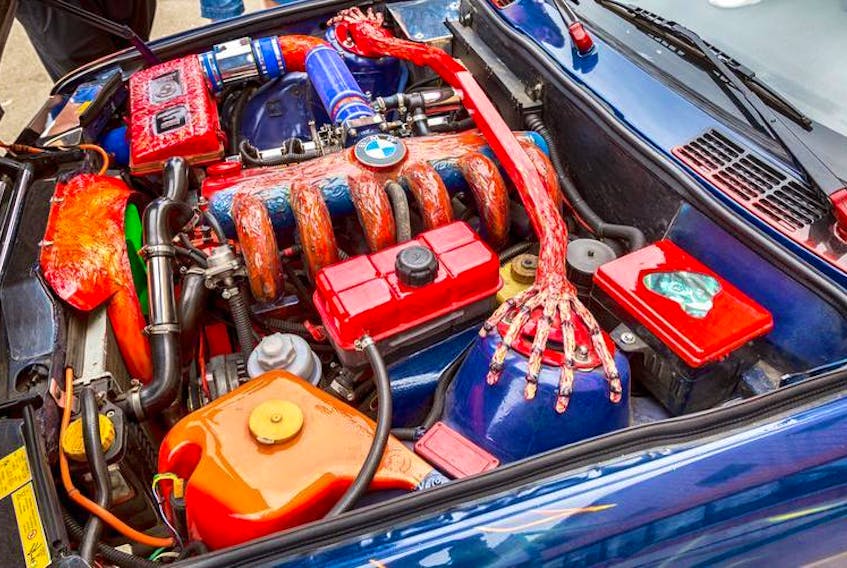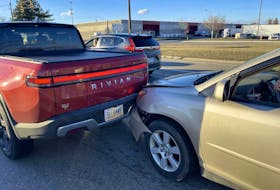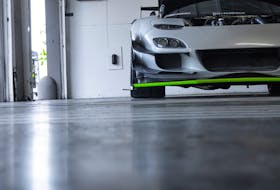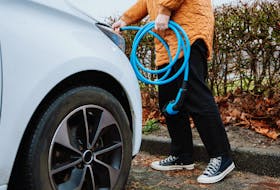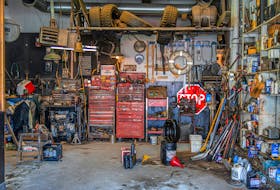Millions of drivers around the globe modify their vehicles with non-factory parts, electronics and programming deployed toward added driving enjoyment, improved looks, and enhanced individuality.
The automotive aftermarket is a billion-dollar industry that has products for everyone — from upgraded lighting and stereo equipment to improved handling and power, to show-car wheel and body kits, to engine management software that can make cars turn in big power gains on the relative cheap.
Thing is, the average used-car shopper is typically best to avoid purchasing a modified vehicle — and especially if the modifications in question fall into one or more of several popular areas.
Below, we’ll have a look at each, and the reasons why you might want to proceed with caution (or move to another used vehicle) if any of these modifications have been applied to the model you’re considering.
Upgraded wheels
Why?: Wheels are the only part of your vehicle that moves, and adding upgraded wheels to any vehicle is an easy way to make a big visual statement. Further, the wheels (and tires wrapping them) can make a big difference or improvement to how the vehicle rides, steers and handles — provided that appropriate, quality components have been selected, and that their installation is sound.
Key concerns: Some non-factory wheels are well-built, will last for years, and come from reputable manufacturers with a strong reputation for building quality products. Other non-factory wheels are questionably built of questionable materials and may be easily degraded or damaged — but hey, they were cheap.
Good to know: If buying a used ride with non-factory wheels, track down the brand name, and some owner reviews online, and do some digging. If the wheels on the vehicle you’re considering are from a less-than-reputable brand, they’ll likely be easier to damage, more likely to suffer leaks and premature finish wear, and more likely to crack, split or fail when driven over rough, pothole-covered roads.
Use extra caution when buying a used pickup truck or SUV with non-factory wheels. Are the wheels strong enough for the application? What if you’re towing a trailer? Don’t take any chances: if that used pickup truck you’re after has a set of aftermarket tires and rims designed for a (much lighter) Toyota Corolla, you’re at an elevated risk of problems.
Lift Kits

Why?: Many shoppers install lift kits to trucks, crossovers, SUVs and even some cars. A lift kit modifies the vehicle’s suspension to make it sit higher off of the ground—for added off-road clearance, or a unique look.
Lift kits are extremely popular in many circles, perhaps especially amongst off-road and 4x4 enthusiasts who use their trucks and SUVs frequently on challenging terrain.
Millions of drivers drive lifted vehicles on the daily with no concern, though less experienced used-vehicle shoppers may wish to exercise some extra caution.
Key concerns: Is the lift-kit on the vehicle you’re considering from a high-quality brand? Was it installed properly by a professional? Noting that poor-quality parts and improper installation can wreak havoc with numerous parts of the vehicle, cause issues with leaks, worn driveline components, tire wear, ride quality, handling and more, used shoppers of lifted vehicles are advised to proceed with caution. As a bare minimum, if you have any concerns, have a local off-road shop, or a licensed mechanic, assess the vehicle for signs of trouble (leaks, driveline wear, poor-quality parts and installation, rust, etc.) before you buy.
Good to know: Lift-kits can significantly alter the resting position of your vehicle’s suspension, axles, seals, joints, and other components. Generally, this is of little concern, provided the lift-kit came from a reputable brand, and was installed by someone experienced with the upgrade.
In other applications, lift kits may cause unwanted noises or sensations, unfavourable handling, or added stress on driveline components that can result in leaks, premature failure of numerous components (including tires), and more. If in doubt, have a mechanic check it out.
Engine Mods
Why?: Options from mild to wild are available to shoppers of virtually any vehicle to help it generate more power and performance. Common engine modifications in some vehicles include intake and exhaust kits, which intend to give the vehicle a more pleasing sound during hard driving, and these are typically no cause for alarm — provided the quality and installation of the parts is sound.
But use extreme caution if the vehicle you’re considering is chipped, tuned, or has otherwise been fitted with non-factory engine computer software designed to make more power.
These commonly come with a designation, like “Stage 1” or “Stage 3” on performance vehicles. The use of this type of software can make an engine more powerful on the relative cheap, and especially if that vehicle is turbocharged or supercharged.
Key concerns: The main concern with engine modifications centres around the more serious ones. If the vehicle you’re considering has an intake and exhaust kit, there’s little to worry about — though chips, tunes and non-factory software (as well as more serious upgrades to engine internal parts, turbocharging, supercharging, and the like) are best avoided by the average shopper, and especially if the vehicle is still under any remaining warranty.
Good to know: Even if removed before a dealer visit, non-factory engine programming can be detected in the event of a warranty claim, which will be denied if the source of the damage is related to the use of non-factory parts or programming. New-vehicle warranties do not cover damage or wear caused by the use of non-factory parts or programming, and dealers have clever ways to detect the presence of this programming, even after it’s been removed from the vehicle. For best results, the average shopper is best to ensure the vehicle they’re considering isn’t (and has never been) running non-factory engine parts or programming.
A LOOK AT SOME POPULAR USED VEHICLES:
- What to look for from a 2015+ Ford Mustang
- 2014+ Cadillac CTS owners report minimal problems
- 2015+ Nissan murano featured many advanced safety features
- 2014+ Toyota Highlander is striking and solid
- 2010-15 Kia Sorento family CUV liked for utility, content
- 2012-18 Toyota Prius V
- 2015+ Subaru Outback offers upscale drive, flexibility

